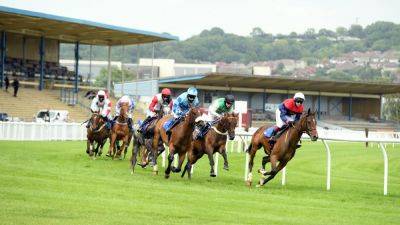Buchenwald memorial provides stark reminders at Euro 2024
WEIMAR, Germany : For one afternoon every week, a privileged few prisoners held inside the electric fences of Buchenwald could find solace in playing football, a brief reprieve from the horrors of the largest Nazi concentration camp within Germany's borders.
Euro 2024, which kicked off on June 14 in Germany, has been a chance to draw back the curtains on the dark parts of the country's history through the nationwide "Football and Remembrance" programme, including the Buchenwald Memorial which highlights the links between the camp and the sport.
"For the SS, the games served to maintain the appearance of normality and conceal the criminal nature of the camp," the Buchenwald exhibition said.
"For the (players) and spectators, the sport offered the opportunity to escape the daily camp routine and its dangers - if only briefly."
Buchenwald sits atop Ettersberg hill, a 30-minute drive from the England team's Euro training base and at the end of the winding and forested Blutstrase - Blood Road.
The words "Jedem Das Seine" - to give each his due - are carved on the wrought-iron entry gates. The clock above the gates is set at 3:15, the moment the camp was liberated by American soldiers on April 11, 1945.
The first football game, organised by the SS, was held on the roll call yard on Easter Sunday in 1939 with players split into "Jews" versus "Aryans".
Football became a regular Sunday feature, with as many as 12 teams formed from those not too ill or weak from starvation and manual labour to play.
"Scoring a goal, making a save or arguing about an offside was the only way you could stop yourself from cracking up," British soldier Ron Jones told the BBC of his time at the Auschwitz concentration camp.
Jones, who chronicled his experiences








